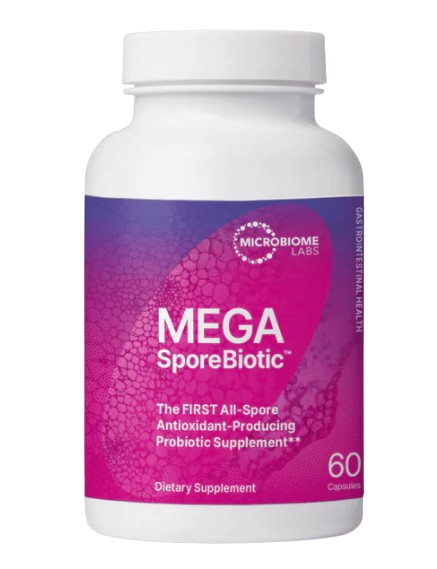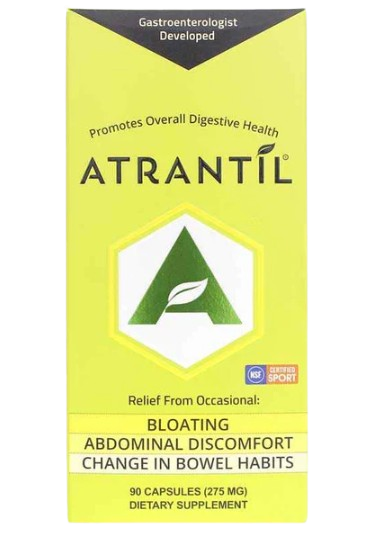Gut Health Supplements: Enhancing Digestive Wellness for Optimal Health
Introduction
Gut health supplements have gained significant attention as individuals prioritize overall wellness by focusing on the health of their digestive system. The gut plays a crucial role in digestion, nutrient absorption, and immune function, making its health essential for overall well-being. Maintaining a healthy gut is key to supporting digestion, enhancing nutrient absorption, and promoting a balanced immune system.
These supplements typically contain a blend of probiotics, prebiotics, enzymes, and other nutrients that are believed to support gut health and digestive function. Ingredients commonly found in these supplements include probiotic strains like Lactobacillus and Bifidobacterium, prebiotic fibers such as inulin and oligosaccharides, digestive enzymes, and vitamins like vitamin D and B vitamins.
Vital Functions of the Gut
The gut, also known as the gastrointestinal tract, is a complex system responsible for several vital functions essential for overall health and well-being:
1. Digestion: The gut breaks down food into nutrients, which are then absorbed into the bloodstream for use by the body. Digestive enzymes and gastric juices help break down carbohydrates, proteins, and fats into smaller molecules that can be absorbed by the intestines.
2. Nutrient Absorption: The lining of the gut absorbs nutrients from digested food and transports them into the bloodstream. Essential nutrients such as vitamins, minerals, amino acids, and fatty acids are absorbed in the small intestine and utilized by the body for various metabolic processes.
3. Immune Function: The gut plays a crucial role in immune function, serving as a barrier against harmful pathogens and toxins. The gut-associated lymphoid tissue (GALT) contains immune cells that help identify and neutralize pathogens, protecting the body from infections and diseases.
4. Microbiota Balance: The gut is home to trillions of bacteria, fungi, and other microorganisms collectively known as the gut microbiota. These microbes play a vital role in digestion, nutrient metabolism, and immune regulation. Maintaining a balance of beneficial bacteria is essential for gut health and overall well-being.
Factors Impacting Gut Health
Several factors can influence gut health and disrupt the delicate balance of the gut microbiota:
1. Diet: Consuming a diet high in processed foods, refined sugars, unhealthy fats, and low in fiber can negatively impact gut health. Poor dietary choices can lead to imbalances in the gut microbiota, inflammation, and digestive issues.
2. Stress: Chronic stress can affect gut health by altering the composition of the gut microbiota and increasing intestinal permeability. Stress-related changes in the gut can lead to digestive discomfort, inflammation, and impaired immune function.
3. Medications: Certain medications, such as antibiotics, nonsteroidal anti-inflammatory drugs (NSAIDs), and proton pump inhibitors (PPIs), can disrupt gut health by altering the composition of the gut microbiota and affecting digestive function.
4. Environmental Factors: Exposure to environmental toxins, pollutants, and chemicals can impact gut health and contribute to inflammation, oxidative stress, and digestive disturbances.
What Are Gut Health Supplements?
Gut health supplements are dietary supplements formulated with ingredients specifically chosen to support digestive wellness and promote a healthy gut microbiota. These supplements are designed to provide additional support to the gut, which plays a vital role in digestion, nutrient absorption, and immune function.
The primary aim of supplements is to promote a balanced gut microbiota, support digestive function, and enhance overall gut health. These supplements typically contain a combination of probiotics, prebiotics, digestive enzymes, and other nutrients that are believed to support gut health and optimize digestive wellness.
The Role of Gut Health Supplements:
Gut health supplements work through various mechanisms to support digestive health and enhance gut microbiota balance:
1. Probiotic Support: Probiotics are beneficial bacteria that help maintain a healthy balance of gut microbiota. These supplements often contain a variety of probiotic strains, such as Lactobacillus and Bifidobacterium, which support digestive function, immune health, and overall gut wellness.
2. Prebiotic Nourishment: Prebiotics are non-digestible fibers that serve as food for beneficial gut bacteria. These supplements may contain prebiotic fibers such as inulin, oligosaccharides, and fructooligosaccharides (FOS), which help nourish and promote the growth of beneficial bacteria in the gut.
3. Digestive Enzyme Support: Digestive enzymes help break down food into smaller molecules that can be absorbed by the intestines. These supplements may contain digestive enzymes such as amylase, protease, and lipase, which support optimal digestion and nutrient absorption.
4. Nutrient Support: Gut health supplements may also contain essential nutrients such as vitamins, minerals, and antioxidants that support digestive wellness and overall gut health. These nutrients help maintain the integrity of the gut lining, support immune function, and protect against oxidative stress.
Exploring the Varied Forms of Gut Health Supplements
Gut health supplements are available in various forms to suit individual preferences and needs:
Capsules or Tablets: These are convenient and easy to take, typically containing a blend of probiotics, prebiotics, enzymes, and other nutrients in standardized doses.
Powders: Gut health powders can be mixed with water, juice, or smoothies for easy consumption. They may offer flexibility in dosing and may contain additional ingredients such as fiber or antioxidants.
Chewables: Chewable supplements are available in tasty flavors and are suitable for those who prefer not to swallow pills or capsules.
Key Ingredients in Gut Health Supplements:
1. Probiotics: Probiotics are beneficial bacteria that help maintain a healthy balance of gut microbiota. Common probiotic strains found in supplements include Lactobacillus acidophilus, Bifidobacterium lactis, and Saccharomyces boulardii.
2. Prebiotics: Prebiotics are non-digestible fibers that serve as food for beneficial gut bacteria. Common prebiotic fibers found in supplements include inulin, oligosaccharides, and fructooligosaccharides (FOS).
3. Digestive Enzymes: Digestive enzymes help break down food into smaller molecules that can be absorbed by the intestines. Common digestive enzymes found in supplements include amylase, protease, and lipase.
4. Vitamins and Minerals: Gut health supplements may also contain essential nutrients such as vitamin D, vitamin B12, and zinc, which support digestive wellness and overall gut health.
How to Incorporate Gut Health Supplements into Your Routine
Incorporating gut health supplements into your daily routine can be a beneficial addition to your wellness regimen. Here are some practical tips for incorporating supplements into your lifestyle:
1. Consult with a Healthcare Professional: Before starting any new supplement regimen, especially if you have underlying health conditions or are taking medications, it's essential to consult with a healthcare professional. They can provide personalized recommendations based on your individual health needs.
2. Choose High-Quality Supplements: Select supplements from reputable brands that use high-quality ingredients and have undergone rigorous testing for safety and efficacy. Look for supplements that contain standardized probiotic strains and have transparent labeling.
3. Follow Recommended Dosages: Adhere to the recommended dosages provided on the supplement packaging or as advised by your healthcare professional. Avoid exceeding the recommended dosage, as this may lead to adverse effects or interactions with other medications.
4. Timing of Consumption: Supplements can be taken at any time of the day, but some people prefer to take them with meals to enhance absorption. Follow the specific instructions provided on the supplement packaging for optimal effectiveness.
5. Pair with Healthy Lifestyle Choices: Supplements work best when combined with other healthy lifestyle choices, such as a balanced diet and regular exercise. Focus on consuming a diet rich in fiber, fruits, vegetables, and probiotic-rich foods like yogurt and kefir.
6. Stay Hydrated: Drinking an adequate amount of water throughout the day is essential for supporting digestive function and overall gut health. Aim to drink at least eight glasses of water daily to stay hydrated and support optimal digestion.
7. Monitor Your Progress: Pay attention to how your body responds to supplements over time. Keep track of any changes in digestion, energy levels, or overall well-being. If you experience any adverse effects or have concerns, consult with your healthcare professional.
8. Be Patient and Consistent: It's important to be patient and consistent with your supplement regimen, as it may take time to experience noticeable benefits. Consistently taking these supplements as part of your daily routine can help support long-term digestive wellness and overall health.
Potential Risks and Side Effects
While gut health supplements can offer potential benefits for supporting digestive wellness, it's essential to address common concerns about their safety and potential risks:
1. Ingredient Safety: While many natural ingredients found in these supplements, such as probiotics, prebiotics, and digestive enzymes, are generally considered safe for most people, there may be risks associated with certain ingredients or formulations. It's important to be aware of any allergies or sensitivities you may have to specific ingredients and to read labels carefully.
2. Potential Side Effects: Some individuals may experience side effects when taking these supplements, particularly if they are sensitive to certain ingredients or if the supplements are taken in excessive doses. Common side effects may include gastrointestinal discomfort, bloating, gas, or diarrhea.
3. Interaction with Medications: Supplements may interact with certain medications, affecting their efficacy or causing adverse effects. For example, probiotics may interact with antibiotics or immunosuppressive medications, while digestive enzymes may interact with blood thinners or antacids. It's crucial to consult with a healthcare professional before starting any new supplement regimen, especially if you are taking medications or have underlying health conditions.
4. Quality and Purity: Not all supplements are created equal, and the quality and purity of ingredients can vary between brands. To ensure safety and effectiveness, choose supplements from reputable brands that adhere to strict manufacturing standards and have undergone testing for purity and potency.
Where to Buy Gut Health Supplements
Gut Health Supplements can be purchased from Sojourns Online Apothecary Store, an online health and wellness store specializing in a diverse range of high-quality supplements. Sojourn offers a variety of formulations to cater to different needs and preferences, making it a convenient and reliable option for acquiring your Gut Health Supplements online.
Top 10 Featured Gut Health Supplements at the Sojourns Apothecary Store
Best supplements for gut health
1.Microbiome Mega SporeBiotic
Microbiome Labs MegaSporeBiotic is a 100% spore-based, broad-spectrum probiotic clinically shown to maintain healthy gut barrier function and support a healthy gut mucosa. This unique all-spore formula effectively reconditions the gut by promoting microbial diversity and maintaining key health-promoting, commensal gut bacteria. By having more of the good gut bacteria the gut can be kept in good balance reducing inflammation and the negative health effects and immune respone that inflammation can provoke. MegaSporeBiotic boasts a 5-year shelf-life, does not require refrigeration, and maintains efficacy during antibiotic therapy.
2.Blue crow botanicals Small Intestine Bacterial Support
This formula supports a healthy balance of gut flora in the digestive tract.
3.Nutramedix Serrapeptase
Our Serrapeptase supplement is one of our most popular products. Containing our proprietary blend of Inulin, a long recognized fiber helping improve digestive health, Serrapeptase benefits are numerous. These powerful vegetable capsules are therefore great as a digestive and joint health supplementᶧ and can be used for metabolic support.
The key ingredients in Serrapeptase may also support healthy sinus and airway functions, as well as cardiovascular and arterial healthᶧ.
In addition, Serrapeptase is a proteolytic enzyme that may assist in the process of breaking molecules of protein into amino acids, making Serrapeptase capsules great supplements for gut health supportᶧ.
4.Biotics Dysbiocide
Dysbiocide® supplies a proprietary blend of herbs and herbal extracts to support normal gut health. The combination of Eastern and Western herbs in this formula provides synergistic, comprehensive support for healthy gut microbiota, even with low dosing.
5.Vitanica Candidastat
Candidastat from Vitanica is a dietary supplement that seeks to support the balance of bacteria in the gut for normal digestion. While the digestive system is home to trillions of bacteria, bacteria live all over the body and support health through various mechanisms. Balancing bacteria is also essential for vaginal health.
6.Atrantil
Atrantil was researched and created by a board certified gastroenterologist to provide overall digestive health and successfully help those suffering from bloating and abdominal discomfort.
Atrantil supports relief from occasional bloating, abdominal discomfort and change in bowel habits.
First in Class: Atrantil is unlike any other product. It is a unique combination of polyphenol extracts that work together to relieve digestive issues and provide digestive support
Targeted Action: Atrantil targets the small bowel to provide relief where it is needed, where digestive issues begin.
Intestinal Support: Atrantil reduces overall gut irritation and helps with gut motility.
Powerful Antioxidant Combination: Atrantil provides protection from cellular damage caused by oxidation.
Everyday Support: Atrantil is ideal for every day, overall digestive support of both the small bowel and the colon.
Gastroenterologist Innovation: Atrantil was developed by a board certified gastroenterologist for treatment of digestive issues.
NSF Certified Sport
Related Posts
-
April 2024
- Apr 11, 2024 Wondering what to do for Symptoms of Lyme Disease?
- Apr 10, 2024 Rejuvenate This Spring With a Cleanse!
-
March 2024
- Mar 21, 2024 Gut Health Supplements: Enhancing Digestive Wellness for Optimal Health
- Mar 5, 2024 Benefits of Massage
-
February 2024
- Feb 21, 2024 The Healing Power of Community
- January 2024
-
December 2023
- Dec 20, 2023 Massage Frequently Asked Questions
- Dec 20, 2023 New Fitness Supplements
- June 2023
- April 2023
-
March 2023
- Mar 3, 2023 Sweet Renewal
-
January 2023
- Jan 31, 2023 Phone Tree Guide
- Jan 11, 2023 Happy New Year!
-
December 2022
- Dec 13, 2022 Ways to Beat Those Winter Blues…
-
November 2022
- Nov 7, 2022 Mindful Eating
-
October 2022
- Oct 21, 2022 Breathwork in Action
- Oct 21, 2022 Energized by the Sun
- Oct 1, 2022 The Joy of Golf
- Oct 1, 2022 An Ounce of Prevention








